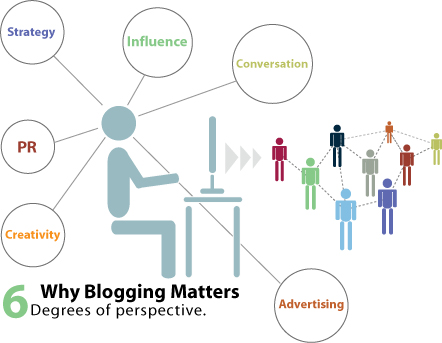 Third Tuesday Toronto attendees last night heard from Globe and Mail technology writer and blogger (geekwatch , mathewingram) Mathew Ingram.
Third Tuesday Toronto attendees last night heard from Globe and Mail technology writer and blogger (geekwatch , mathewingram) Mathew Ingram.
When Mathew first discovered blogs, the comments drew him in as much as the original post. He had been writing an online column for the Globe and Mail since 2000. He was read by about 10,000 people per day. And he was receiving very little comment. Then the Globe took its online content behind a paywall. His readership plunged from 10,000 per day to 300.
He began his blog to reach around the paywall and at the same time begin to interact with his readers. And he was not disappointed. His audience talked back to him from the outset of his blog.
At the newspaper, many people are skeptical of the value of many of the comments posted on blogs – seeing many as riff raff with unqualified views. But Ingram feels that a great deal of value was being missed. So his approach has been, when in doubt, let it be posted.
 What does he put on his personal blog and what does he put on his Globe blog? He has no set rule. There still aren’t that many people who are writing both for the paper and publishing their blogs. So, he is making up the rules as he goes along.
What does he put on his personal blog and what does he put on his Globe blog? He has no set rule. There still aren’t that many people who are writing both for the paper and publishing their blogs. So, he is making up the rules as he goes along.
Obviously, his personal blog has more of his personal thoughts. He assumes that most of his readers for his personal blog are more tech savvy. So, he will go more in depth, more inside info on his personal blog.
The other reason the blog is so appealing to him is because he has so much more that he would like to write than he can actually match to the newspaper’s space requirements. These are most often short, snappy pieces that fit on a blog but would not meet the standards of the newspaper.
Mathew also uses his blog as an idea generator. He will often write small stories on his blog that turn into the seed of an idea for a story in the newspaper. Second Life is a good example of this. He began posting stories on his blog about companies establishing themselves in Second Life. And as he thought about it he realized this was a legitimate business story. A story in the newspaper followed.
Looking at the blog networks, Mathew sees many of the individual blogs as being throwaways. But in a medium in which the cost of entry is so low, it is possible to throw many of them at the wall to see if any stick.
 Should PR practitioners treat bloggers differently than journalists who write only for Mainstream Media? Yes. Bloggers can post at any time, in any way, at any place. They have broken free of the news cycle and the space constraints of the traditional outlets.
Should PR practitioners treat bloggers differently than journalists who write only for Mainstream Media? Yes. Bloggers can post at any time, in any way, at any place. They have broken free of the news cycle and the space constraints of the traditional outlets.
Blogging in the newsroom has moved beyond the tech niche. Beats that have already embraced blogging include not only tech and politics to include business and sports. Each has an intensely interested audience that wants information immediately. Blogs are a natural medium for niche interests.
On Reuters Bureau in Second Life: “I think it’s a great idea. What does it cost Reuters? Maybe a few Linden dollars. And it’s great marketing for Reuters. It gives people the impression that Reuters knows what’s going on.”
We are seeing a blurring of boundaries similar to when people in the early days of the web first discovered that they could travel to sites anywhere in the world without leaving their living rooms. The interesting thing is not so much where it is happening as what is happening.
What will this mean for Canadians? One of the impediments to free access and flow of information is the current content ownership arrangements. For example, some television programs are available through webcast in the US, but not available in Canada because our IP addresses are blocked.
 On time division between the traditional newspaper (day gig) and personal blogging: Mathew feels that he benefits from an employer that views his personal blogging as a continuum with his newspaper writing. It adds to his knowledge and wealth of story ideas.
On time division between the traditional newspaper (day gig) and personal blogging: Mathew feels that he benefits from an employer that views his personal blogging as a continuum with his newspaper writing. It adds to his knowledge and wealth of story ideas.
On PR practitioners pitching bloggers: Mathew says that he is being pitched all the time to write on his blog about startups, new companies, new things by people who are trying to get something viral going on.
He thinks that many people are still trying to figure out how to do this correctly. Some people seem to be sending out mass pitches to a list without necessarily being familiar with the actual content of his blog. PR practitioners need to be familiar with the content of the blog and the perspective of the blogger in order to effectively approach the blogger to pitch an idea.
Sometimes, he will pick up ideas for blog posts that will make a perfect post, but do not have enough substance or heft to make a good full story in the newspaper.
Bloggers have even shorter attention spans than journalists in traditional media outlets. So, make the pitches very focused, very tight.
And one good rule for pitching bloggers: “Don’t be a dick.” Don’t do something to a blogger through the online pitch that you wouldn’t do if the person was standing right in front of you.
 On Edelman / Wal-Mart: Richard Edelman said that he took Thursday and Friday to find out the facts. He wrote the response on the weekend and then he took the next day to get people to sign off on his statement as being factually correct. Mathew’s reaction: He took eons in blogging time. By the time he responded, it was far too late.
On Edelman / Wal-Mart: Richard Edelman said that he took Thursday and Friday to find out the facts. He wrote the response on the weekend and then he took the next day to get people to sign off on his statement as being factually correct. Mathew’s reaction: He took eons in blogging time. By the time he responded, it was far too late.
A great presentation. With the questions and answers, Mathew was on his feet for more than an hour. Thank you Mathe
w for your generosity in spending time and giving so freely of your thoughts and ideas to the Toronto social media community.
And thanks to Ed Lee for taking the lead in organizing tonight’s event!
 I am a member of the Task Force. And I believe that the issues discussed are of importance to all practitioners. All members of the community, not only the members of the task force, should have an opportunity to consider and discuss these issues. So, to that end, I’m making the full Task Force report available for downloading. I invite anyone interested in this topic to download the complete CPRS Task Force Submission.
I am a member of the Task Force. And I believe that the issues discussed are of importance to all practitioners. All members of the community, not only the members of the task force, should have an opportunity to consider and discuss these issues. So, to that end, I’m making the full Task Force report available for downloading. I invite anyone interested in this topic to download the complete CPRS Task Force Submission.
 I’ve only recently discovered
I’ve only recently discovered  Dan Greenfield’s
Dan Greenfield’s 

 This past week Canadian Member of Parliament Garth Turner was ejected from the Conservative Party Caucus. His expulsion was linked to his
This past week Canadian Member of Parliament Garth Turner was ejected from the Conservative Party Caucus. His expulsion was linked to his 
 Dana Morningstar has
Dana Morningstar has 



 And when they see it change from grey to orange, the clicking will start. And no one will care what RSS means. They’ll just be subscribing.
And when they see it change from grey to orange, the clicking will start. And no one will care what RSS means. They’ll just be subscribing.




